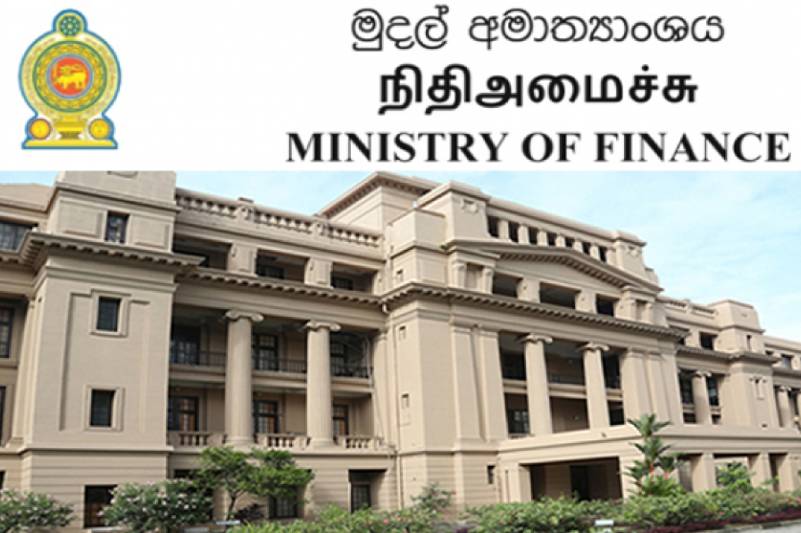Fiscal operations of the Government in the first four months of this year have showed a mixed performance even before the impact of COVID-19, though the Treasury attributes this to the decline in revenue mobilisation stemming from the outbreak in mid-March 2020 and the reduction of Government expenditure.
According to the Mid-Year Fiscal Position Report 2020 released last week, the Budget deficit for the first four months of 2020 was Rs. 452 billion, up by 24% from the corresponding period of the previous year. Analysts opined the fiscal performance is likely to be under severe stress during the remainder of the year, given the local and global shocks of the COVID-19 pandemic.
Total Government revenue declined considerably by 20.3% to Rs. 476.7 billion during the first four months of 2020, compared to Rs. 598.1 billion recorded in the same period of 2019.
Tax revenue declined significantly by 25.9% to Rs. 408.5 billion in the first four months of 2020, compared to Rs. 551.5 billion in the same period of 2019. In contrast, nontax revenue increased significantly by 46.5% to Rs. 68.2 billion from Rs. 46.6 billion.
Total Government expenditure fell by 3.2% to Rs. 930.9 billion in the first four months of 2020, compared to Rs. 961.9 billion in the same period of 2019.
However, recurrent expenditure increased by 9.3% to Rs. 820.7 billion in the first four months of 2020, compared to Rs. 750.5 billion in the same period of 2019.
Capital and net lending declined significantly by 47.9% to Rs. 110.2 billion in the first four months of 2020, compared to Rs. 211.3 billion in the same period of 2019.
The Treasury said that reflecting the adverse impact of COVID-19 on the Government revenue mobilisation efforts, total Government revenue declined significantly, particularly in March and April, due to the closure of economic activities stemming from partial lockdown, maintaining social distancing, and other COVID-19 control measures.
Tax revenue from income taxes, taxes on goods and services, as well as import-based taxes dropped in the first four months of 2020, amidst the pre-COVID improvement in revenue mobilisation from income taxes, excise duties, Ports and Airports Development Levy (PAL), Customs Import Duty (CID) and Special Commodity Levy (SCL).
Revenue collection from income taxes during the first four months of 2020 declined by 21.9% to Rs. 81.4 billion due to the removal of certain income taxes. However, revenue generated from corporate and non-corporate taxes increased by 35.7% to Rs. 57.8 billion in the first four months of 2020, compared to Rs. 42.6 billion in the same period of 2019.
Revenue from domestic consumption-based taxes dropped by 37.3% to Rs. 121.2 billion in the first four months of 2020.
Revenue from Value Added Tax (VAT) on domestic activities declined by 52.9% to Rs. 48.2 billion while revenue generation from excise duty on domestic activities fell by 0.9% to Rs. 71.5 billion in the first four months of 2020.
Revenue collection from import-based taxes such as CID, CESS levy and SCL declined by 18.7% to Rs. 190.1 billion in the first four months of 2020, compared to Rs. 234.0 billion in the same period of 2019. During the first four months of 2020, revenue generated from CID declined by 0.3% to Rs. 31.3 billion and revenue from VAT on import related activities declined by 51.4% to Rs. 28.7 billion. Revenue collected from PAL increased marginally by 0.2% to Rs. 37.2 billion whereas revenue generated from SCL declined by 3.0% to Rs. 24.1 billion in the first four months of 2020. Excise duty on import-affiliated activities dropped by 3.5% to Rs. 56.1 billion in the first four months of 2020, compared to Rs. 58.1 billion in 2019. This drop was mainly attributable to the decline in revenue from motor vehicles and liquor products.
Revenue from CESS fell by 24.5% to Rs. 12.7 billion in the first four months of 2020 due to the removal of CESS of certain import items.
Reflecting the increased Central Bank profit transfers of Rs. 24 billion and the receipts of Rs. 8.6 billion of rent income in February 2020, revenue from non-tax increased significantly by 46.5% to Rs. 68.2 billion during the first four months of 2020. However, interest income, profits and transfers and sales and charges declined by 59.7%, 10.3% and 24.5%, respectively.
In the Mid-Year Fiscal Position Report 2020, the Treasury noted that tight fiscal and monetary policy undertakings witnessed over the last few years were relaxed with the introduction of a simple, transparent and efficient tax system.
The stimulus package is geared towards augmenting aggregated demand of the economy, while regaining business confidence and the recovery of the economy from the saddled economic performance. As such, Economic Service Charge (ESC), Nation Building Tax (NBT) and Debt Repayment Levy (DRL) were removed for the simplification of the tax system. Personal and corporate income tax structures were revised, and personal tax-free allowance increased while broadening the tax slabs. Value Added Tax (VAT) rate was slashed to 8% from 15%, except for the financial services, and VAT registration threshold expanded.
(FT)

